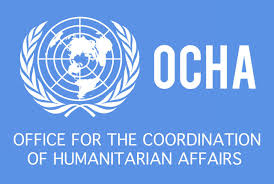NATIONAL NEWS
UN Humanitarian Agency To Shut Down Operations In Nigeria

The United Nations Office for the Coordination of Humanitarian Affairs (UNOCHA) set to shut down its operations in Nigeria.
The Minister of Humanitarian Affairs and Poverty Reduction, Professor Nentawe Goshwe, revealed this during a Validation Workshop on the Anticipatory Action Framework for Nigeria, held at the National Counter Terrorism Centre, Office of the National Security Adviser, on Wednesday, in Abuja.
According to him, the UN Resident and Humanitarian Coordinator, Mohamed Fall, had informed him about the decision.
Professor Nantawe, who decried the impact of flood disasters and insecurity on livelihoods in Nigeria, commended UNOCHA for its interventions in the country, especially in the conflict-affected Northeastern states.
He said it is unfortunate that UNOCHA is pulling out of Nigeria in the face of daunting humanitarian challenges still experienced across the country.
It was earlier reported that the United Nations’ emergency and disaster response agency said it would reduce its global workforce by 20% and scale back operations in nine countries, as it confronts a severe funding crisis and escalating global needs.
In a message sent to its staff through the agency’s website on Friday, OCHA head Tom Fletcher outlined “brutal cuts” driven by a nearly $60 million funding shortfall for 2025, compounded by rising humanitarian demands.
OCHA will withdraw from or adjust operations in Cameroon, Colombia, Eritrea, Iraq, Libya, Nigeria, Pakistan, Turkey, and Zimbabwe, and aim to prioritize “dynamic and full responses” in remaining locations where it operates.
According to Najwa Mekki, Director of Communications at OCHA, citing a separate letter Fletcher wrote, “the agency plans to lay off approximately 500 staff members from its workforce of about 2,600 employees across over 60 countries with a more concentrated presence in fewer locations”.
The cut follows months of austerity measures, including a hiring freeze and travel restrictions, which saved $3.7 million.
“The humanitarian community was already underfunded, overstretched, and literally under attack. Now, we face a wave of brutal cuts,” Fletcher wrote.
He emphasized that the reductions stem from financial constraints rather than diminished needs.









